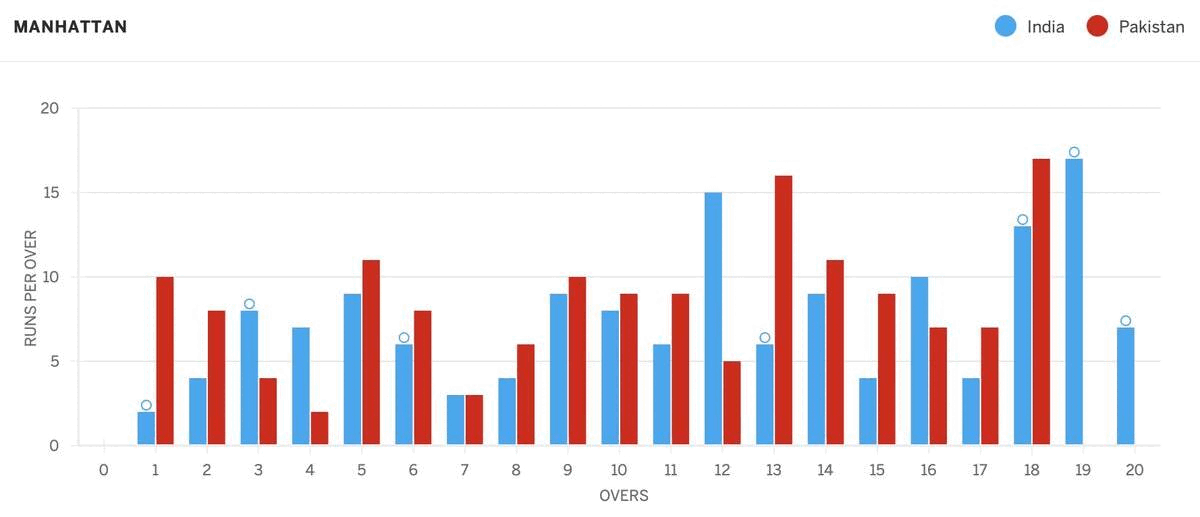How Writing Is Like Cricket

Street cricket is a simple game, requiring just a few people. Even dogs make excellent fielders. First you block off the road with two chairs (or whatever). A bowler tries to hit one chair and one batter tries to hit the ball away.

Then the batters (there’s two) run between the chairs. This is how you score runs. The fielders try to either catch the ball or throw it at an unguarded chair. Sometimes you get 4 or 6 runs for hitting it especially far, but most of the time you’re just running.

I never played cricket much, but I think about the game often. It’s a lot like writing. Most days you have to just keep running. Only sometimes do you get big hit. You have to just put words into the ether just as you have to put the ball in the air. Where it lands no one can say.

Nowadays I only watch cricket on TV. The televised game is a game of statistics as much as ball and stick. Graphs attempt to bring order to the chaos, but we watch because the chaos often wins.
1. Watch The Run Rate
One graph you always watch is the run-rate, or Manhattan graph. It’s a simple graph, runs per over (six balls). It looks a lot like the Medium graph I check all the time. Views per day.

Cricket is all about increasing your runs and writing is all increasing your views. Both are ultimately a measure of fans, the audience for which we play. Maybe it’s not the reason we love the game—street cricketers play anyways—but it’s the reason we get paid. And so gods know, we watch the graphs.
However, the fact is that no ball predicts the next just as no article has any real connection to what follows. They’re definitely correlated, but oftenimprobability happens, which is why we play. You can reach the boundary, you can change the conversation, you can poke fate. Add up these little improbabilities, day after day, and you’ve changed your own fate.
But if you want to even have a chance, you have to show up to play. It’s all a game of chance, but you can make the chances you take. In cricket that means just standing up to bat. In writing that means getting up to write. Either way, you have to face the day.
And every day throws something new at you. Some event, some book, some dream even; all some connection you might make. Like connecting bat to ball, I can even hear the sound in my head when I’m on a writing streak. I hear the *tok* of each well-played stroke, the *plop* of each one that just dribbles and dies away. I don’t always ‘win’, but I certainly lose if I go silent. So I don’t just watch the graphs. I listen to what they say, just as much as if it were a crowd cheering.
2. Run For Two
Another cricket lesson I always remember is running for two. In cricket it’s often safe to run for one run, but very risky to double back and go for two. Yet in a close game, you have to do it, because those little scores all count.
In writing of course, nobody is going to get you out, but it is difficult. It is extra effort when you could just clock out, cause you’re hitting a decent run rate. But I try to remember the close cricket games I’ve seen and I always try (and usually fail) to run for two. I try to publish two things a day.
This publishing pressure is somewhat unique to the grind of online writing, but every writer needs to push themselves a little extra. It’s a pleasure when you’re in the zone, but sometimes it’s a bit of a slog to get there. And that’s the effort that you have to make. It’s not enough to just run. Sometimes you have to run for two.
3. Big Hits Will Come
What makes cricket so unpredictable is the boundaries. If you hit it out of the field, either rolling or in the air, you get four or six points, respectively. These hits also change the feeling of the game, and it’s very much a mind game. They’re what make it so thrilling to watch.
Writing is also unpredictable, especially online, because someone can share something and it suddenly blows up. I’ve had pieces get millions of views and earn thousands of dollars (though now I’ve happy with far less). I have always been satisfied if just one person reads and connects with my work, but the thrill of a big hit is always there.
To get hits, however, you have to just hit the ball. Over and over again, even when it goes nowhere. Sometimes I can feel it right off the bat, but sometimes it’s just a lucky bounce, or the nature of the pitch itself. This is what makes cricket, like writing, so interesting. It’s not just averages or grinding out runs. Sometimes you really hit the ball and it flies beautifully away.
How Online Writing Isn’t Like Cricket
Like any metaphor, however, the connection between cricket and writing also breaks down, also in an interesting way. Cricket would be crazy if dead balls got up and ran off for fours and sixes weeks later, but this happens in writing all the time. Humans or algorithmic gods will pick up old articles and run with them. This actually happens all the time. Publishing happens immediately, but reading comes on a delay. For me it’s weeks or months, but historically it can be centuries.
Unlike cricket, no one knows how long the ball may roll, or how far. Even the absolute earliest writers were conscious of this fact. You can still hear ancient Egyptians talking about it from 3,300 years away. As a very old poem goes:
A man is dead, his corpse is in the ground:
when all his family are laid in the earth,
It is writing that lets him be remembered,
in the mouth of the reciter of the formula.
Scrolls are more useful than a built house,
than chapels on the west,
they are more perfect than palace towers,
longer-lasting than a monument in a temple.
The immortality of the writer (1200 BC)
In this way writing is a strange, timeless game, stranger even than the early timeless test matches of cricket. The real impact of writing is measured not in days, weeks, or even lifetimes but in time beyond our ken. Popular writing can disappear and obscure writing can be raised up. No one knows, least of all the writer.
All art is ultimately labor, it only acquires higher value after the fact. To the artist it’s just work. You have to scrape the papyrus, you have to etch the stone, you have to preserve words in this fluid digital world. Like any creature trying to make a living, you must work to survive the day, and have no idea if you’ll end up fossilized in stone.
I Don’t Like Cricket, I Love It
Like life, like cricket, however, this is all analysis after the fact. Why does anyone live, why does anyone write, why does anyone play? Ultimately it’s just fun. It’s either fun or you some hope it will get fun, so you keep trying.
Sometimes you get a hit, sometimes you get hit, and most often nobody notices you at all. Sometimes you have the sweetest moments just alone in your body. That’s the nature of cricket, or writing, of all grown-up play. It’s certainly labor, but it’s a labor of love. So as the old song goes, I don’t like writing. I love it. It’s a blessing to play.